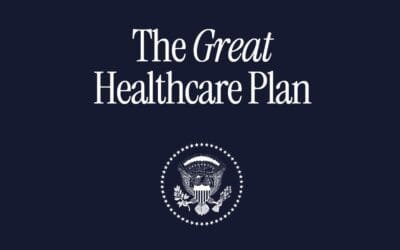I’m usually the guy reminding everybody, “It is not a ‘price control’ when the government reduces the prices [it] pays for drugs.” I expected that I would be singing that tune again this morning when President Trump released an executive order on drug pricing. To my knowledge, Trump has never taken any steps to impose actual price controls on prescription drugs (read: coercive restraints on pharmaceutical transactions outside of government programs).
I was wrong.
Unlike the Inflation Reduction Act or Trump’s past proposals, Trump’s executive order is an attempt to impose government price controls on pharmaceuticals.
Today, President Trump ordered the Department of Health and Human Services to “communicate…price targets to pharmaceutical manufacturers.” Trump does not in any way suggest those price targets would apply only to the prices the government pays for medicines.
If HHS determines that pharmaceutical manufacturers have failed to make “significant progress” (whatever that means) toward those targets, things get ugly. In that event, Trump commands:
- HHS shall “to the extent consistent with law…impose most-favored-nation pricing.”
- The Department of Justice and the Federal Trade Commission “shall…undertake enforcement action against any anti-competitive practices.”
- The Commerce Department and other agencies “shall…consider all necessary action regarding the export of pharmaceutical drugs or precursor material.”
- The Food and Drug Administration shall “review and potentially modify or revoke approvals granted for drugs.”
- All federal agencies shall “take all action available…to address global freeloading and price discrimination against American patients.”
Trump’s executive order is a laundry list of coercive actions he plans to take against drug companies that do not make “significant progress” toward his “price targets.”
HHS does not have the power to “impose” price controls on private pharmaceutical purchases. If it did, some past administration already would have exercised that authority. But Trump might be able to impose price controls even without statutory authority. Congress has granted the executive branch so much power already, and so much discretion in using those powers, that the president may be able to claim this power that Congress never granted. What drug manufacturer would risk having HHS, DOJ, the FTC, Commerce, the FDA, and other federal agencies simultaneously taking action against them?
The federal government does countless things that increase prices for pharmaceuticals. If Trump wants to reduce drug prices, there are several steps he can take and steps that he should push Congress to take. Price controls are never the answer.
If Trump were serious about reducing drug prices, for example, he could unilaterally implement what I recommended late last year: “The administration should expand Executive Order 13938 [from July 2020] by directing the secretary to finalize a regulation that waives the prohibition on reimportation for all classes of drugs and devices from all Organisation for Economic Co-operation and Development member nations.” That one measure would reduce the trade barrier that enables the very price discrimination that vexes Trump.
Instead, Trump lamely directs the HHS Secretary to “consider” allowing more reimportation, after which he could maybe ask the FDA “to describe circumstances” under which US residents could “import prescription drugs” but only “on a case-by-case basis.”




